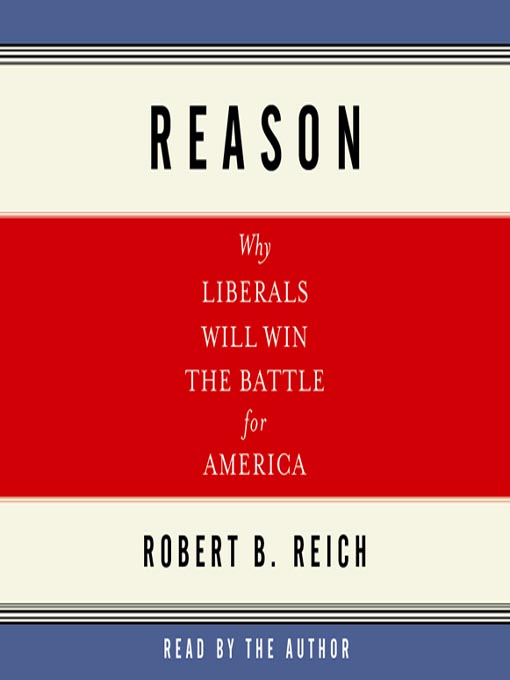
Reason
Why Liberals Will Win the Battle for America
کتاب های مرتبط
- اطلاعات
- نقد و بررسی
- دیدگاه کاربران
نقد و بررسی

Economist Reich defends liberalism against the ascendant "rad-cons" (radical conservatives), who, he believes, are ruining America. His experience as a government appointee gives him credibility; his experience as a TV and radio pundit gives him considerable style as narrator. Blessed with a pleasant voice, he reads expressively, not to mention unctuously. He convinces the listener of his anxiety over the fate of the nation and his enthusiasm for reform. However, he fails to convince the thinker of the truth of his inferences, despite the numerous anecdotes and statistics he cites. He is as partisan, if not quite as extreme, as the rad-cons he denounces. The choir he is preaching to will most enjoy but benefit least from this volume. Y.R. (c) AudioFile 2004, Portland, Maine

March 29, 2004
Today's conservatives ("Radcons") are reckless, vituperative extremists, deeply at odds with the caution and civility of traditional conservatives like Edmund Burke, argues Reich (Locked in the Cabinet
), Clinton's first secretary of labor. Liberals, he asserts, remain squarely in the tradition of Jefferson and FDR, not (as Radcons allege) the late '60s New Left. Yet liberals have ceded certain issues and qualities to Radcons that they should take back. Moral outrage is one: "There is moral rot in America, but it's not found in the private behavior of ordinary people. It's located in the public behavior of people at or near the top." Quoting liberally from conservatives like Robert Bork (who was Reich's law school professor and gave him his first job), Reich wholeheartedly approves of their moral indignation but disagrees with their targets. Referring to John Q. Wilson's "broken windows" argument for zero tolerance of petty vandalism, he writes, "The corporate fraud, conflicts of interest, exorbitant pay of top executives, and surge of money into politics are like hundreds of broken windows." Despite such well-made points, the good-natured Reich can't sustain outrage for more than a few sentences. His second main topic—reclaiming economic growth as a liberal banner—is more seriously compromised by his underdeveloped mix of neoliberalism and social democracy (despite his lucid critique of the Radcons' economic ideas and record). But he roars home with his last main subject, "Positive Patriotism," rejecting "chest-thumping pride" in favor of defining America by its ideals. Although his book is uneven, Reich's distinctive perspective provides insights targeted well beyond November's election. Agent, Rafe Sagalyn. 60,000 first printing.

























دیدگاه کاربران